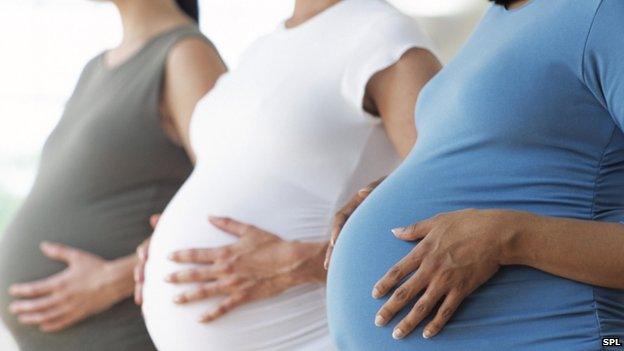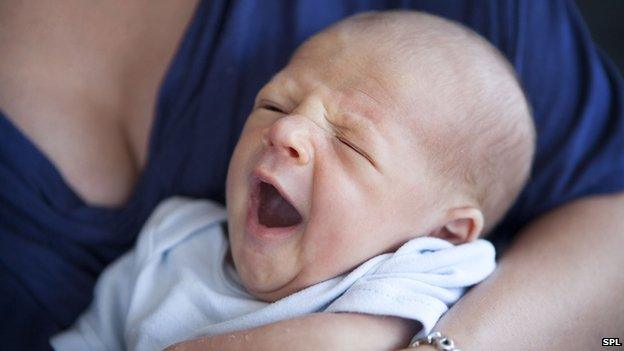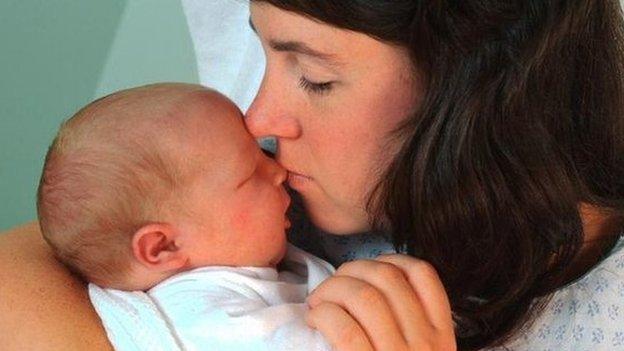Mental health: The £8bn cost of poor care for new mothers
- Published

Depression, anxiety and psychoses such as bipolar disorder are all a risk for pregnant women
Society is paying a "shocking" price for poor mental health care for pregnant women and new mothers in the UK, a report says.
It said that for all births in one year, there would be a long-term cost of more than £8bn stemming from mental health problems.
The report was written by the London School of Economics and the Centre for Mental Health.
The Department of Health said it was investing in mental health training.
One in five women develops some form of mental health issue during pregnancy and the months after childbirth.
Depression, anxiety and psychoses, such as bipolar disorder or schizophrenia, are all a risk.
Lost earnings
The report said they were "of major importance" because of the damage to the mother's wellbeing and "because they have been shown to compromise the healthy emotional, cognitive and even physical development of the child".
Of the £8.1bn cost, a fifth was borne by the public sector including the NHS and social services. The remainder was estimated as a wider cost to society such as through lost earnings.
And the authors argue they have underestimated the cost.

"The good news is that women recover when they get the right treatment," says Dr Alain Gregoire
The report went on to criticise "patchy" services across the country saying half of all cases of depression went undetected and many women did not get appropriate treatment.
It said the cost of providing a service that met minimum National Institute for Health and Care Excellence guidelines across the country would be £337m a year.
Impact on children
Dr Alain Gregoire, the chair of the Maternal Mental Health Alliance, said: "Perinatal mental health problems are common and costly.
"The good news is that women recover when they get the right treatment. It is vital that all women, wherever they live, get the specialist help they need."
Mums Ruth Eglin, Abi Sherratt and Natalie Nuttall speak about mental health problems related to their pregnancies
Annette Bauer, the lead author of the report, said: "Our findings show that mothers' mental health is vital to the economy and to society as a whole, particularly because of the potential negative impact that untreated maternal mental health problems may have on children.
"In order to protect the family's long-term health, intervention needs to start before the child is born, or shortly after because the potential benefits are very high and the costs could be fully recovered in a short time frame."
Health Minister Dr Dan Poulter said the government was making significant efforts to improve mental health care during pregnancy and after childbirth.
He said: "It is vital new mothers receive the specialist care they need.
"This is why in future all midwives will have mental health training and why we have recruited 1,700 more midwives and an extra 2,000 health visitors since 2010 to provide the personalised care and support that women and new mums deserve.
"We are also ensuring that every birthing unit has trained specialist mental health staff available to support pregnant women and new mums by 2017."
- Published11 November 2012

- Published6 July 2014
